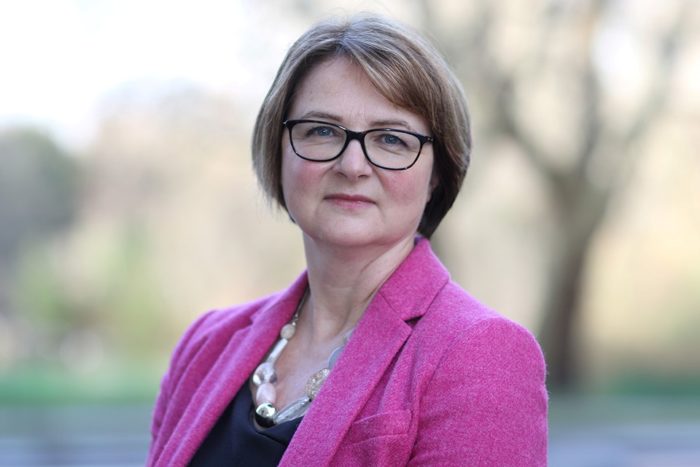NUR-SULTAN – The new British Ambassador to Kazakhstan says that the UK and Kazakhstan have built strong bilateral relations and effective development cooperation as the countries are set to celebrate the 30th anniversary of diplomatic relations in 2022.

British Ambassador to Kazakhstan Kathy Leach.
“It is a huge honor and privilege to work here. Kazakhstan has made amazing progress over the last 30 years. In terms of my priorities, the 2021 United Nations climate change conference (COP26) in November is an important event with the UK taking the presidency. I see this as an opportunity to really push on the green transformation agenda in Kazakhstan,” said Ambassador Kathy Leach, who officially began her mission on Sept.9.
Leach previously served in Yerevan, Tokyo, and Moscow. In addition to diplomatic services, she mastered the languages of the places she lived. She speaks Russian, French, and has learnt Japanese and Armenian, and surprised the local audience with her knowledge of Kazakh during the morning show on the Qazaqstan TV channel.
Ambassador Leach welcomed Kazakhstan’s ambitious plans to develop and adopt a development strategy to lower emissions and decarbonize the economy, which will be presented in Glasgow at the COP26.
“We highly valued President Tokayev’s announcement last year at the climate ambition summit of the net zero by 2060 goal. The low carbon development strategy is an important document. This will help to set the agenda over the course of my mission here,” she added.
The important thing is the plan to achieve it. The plan should convince investors and the fossil fuel companies that there is a total commitment from the government to the low carbon path. “Our experience in the UK is when the government makes clear that they are absolutely committed to that goal and they have a concrete policy framework to do that, then people have the confidence to invest in the low carbon industries and alternatives.”
The UK has been able to decarbonize its economy and power sector in particular, more quickly than almost any other major economies in the world. Back in 2008, nearly 40 percent of electricity was generated by coal and today it’s around 5 to 7 percent and there are some days where the coal power stations are not even turned on at all.
“For Kazakhstan, it’s also important to develop the financial tools in their own domestic economies to support the transition. And the AIFC and the Ministry of Ecology have been working hard to develop the idea of green bonds, for example, in Kazakhstan. So that’s really important,” she said.
In 2019, the UK was Kazakhstan’s sixth largest investor and among its largest trade partners in terms of trade turnover. “The pandemic has not helped trade,” noted the ambassador. “But we hope that we can recover and do everything we can to get things back on track again. Both sides are really keen to get back to business and look at how we can expand. And again, the critical thing is how do we now really try to expand trade and investment in the non-fossil fuel sector, because that’s been our strength in the past, but now we need to look at those non-fossil fuel areas: renewables, mining, agriculture, financial services, education.”
Leach noted that it would be great to see more British food, drink and clothing brands in Kazakhstan.
The ambassador is especially proud of the Kazakh – UK links with young people both through the Chevening and Bolashak programs. “We now have a critical mass of bright young people in Kazakhstan, who have studied in the UK and who can combine the kind of patriotism for their country wanting to support their country with the best British ideas. I hope this will set Kazakhstan on the right course for the next 30 years,” she said.
This September, more than 150 students have been enrolled at the new De Montfort University, the first British university to deliver UK qualifications in Kazakhstan in Almaty. “It’s the first time we’ve had a dedicated UK campus in Kazakhstan. It represents an exciting, new opportunity for higher education,” she noted.
